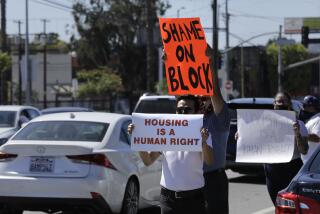Is tenant entitled to interest on security deposit?
- Share via
Question: I have lived in my apartment for six years. Just recently, a friend told me that I should have been receiving interest on the $2,000 security deposit I paid when I first moved in. Over all these years, the interest should have added up to a lot of money. Am I too late to sue for the unpaid interest?
Answer: If you have a written rental agreement, the good news is that you have four years to file a case in Small Claims Court or any other court for money owed as a result of your security deposit, for example, failure to refund it.
If you have an oral agreement, even if there aren’t many details other than the amount of rent and the amount of the security deposit, you have two years to file a case.
But the bad news is that there is no state law in California requiring a landlord to pay interest on a security deposit.
You can check to see whether your local jurisdiction has an ordinance requiring interest to be paid on security deposits.
Some local rent control ordinances do require landlords to pay interest. In San Francisco, for example, the rent control ordinance requires that interest be paid yearly.
In the city of Los Angeles, landlords with rent-controlled units must pay interest on any security deposit held for at least one year, and the interest may be paid monthly or yearly as a direct payment or credit on rent. The city’s rent control law applies to dwellings occupied by the same tenant for more than 30 consecutive days and with a certificate of occupancy issued before Oct. 1, 1978.
But if you are not under such a local ordinance, your landlord does not owe interest to you.
Van Deursen is director of Dispute Resolution Programs for Project Sentinel, a Bay Area nonprofit. Send questions to [email protected].


